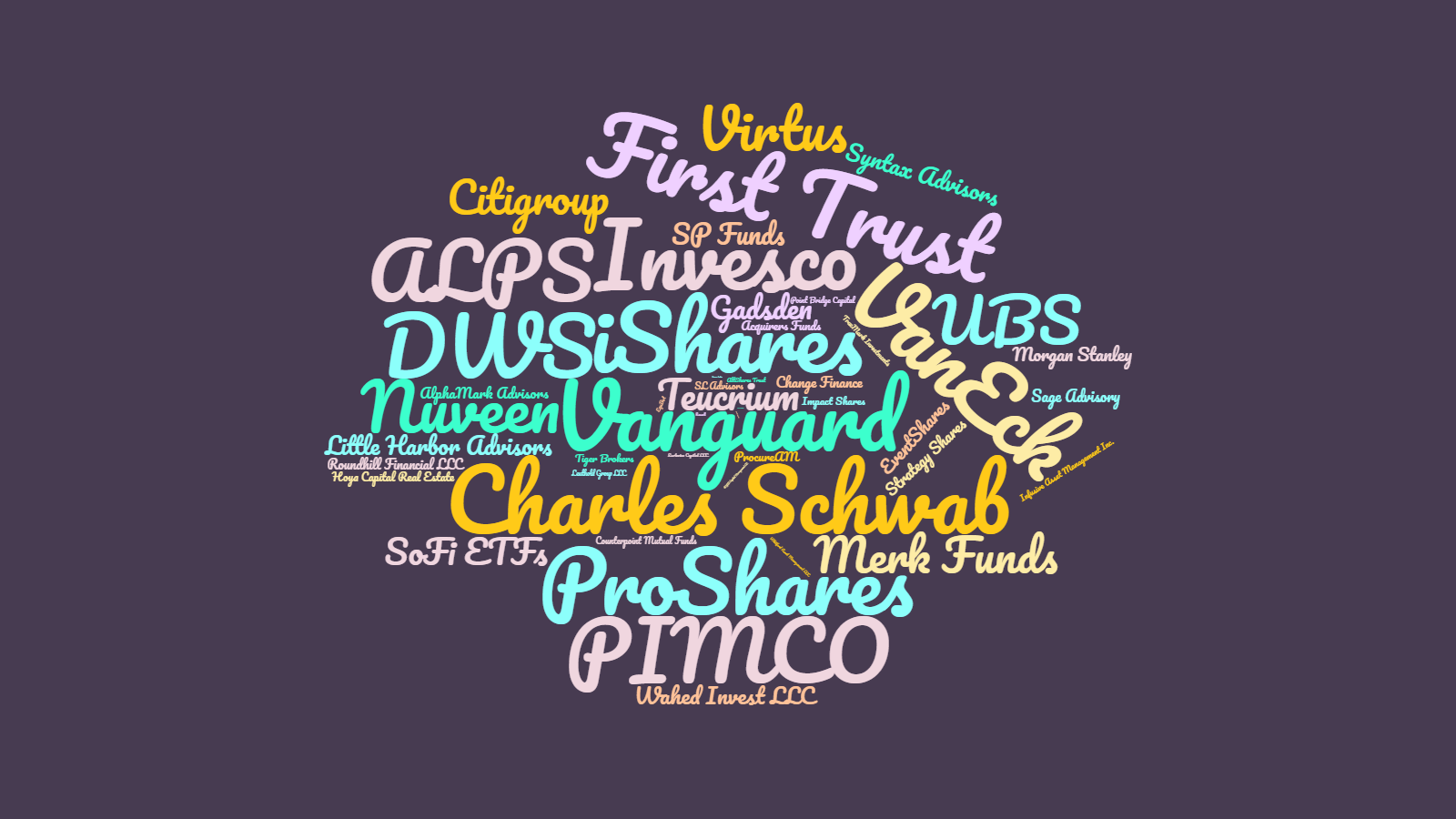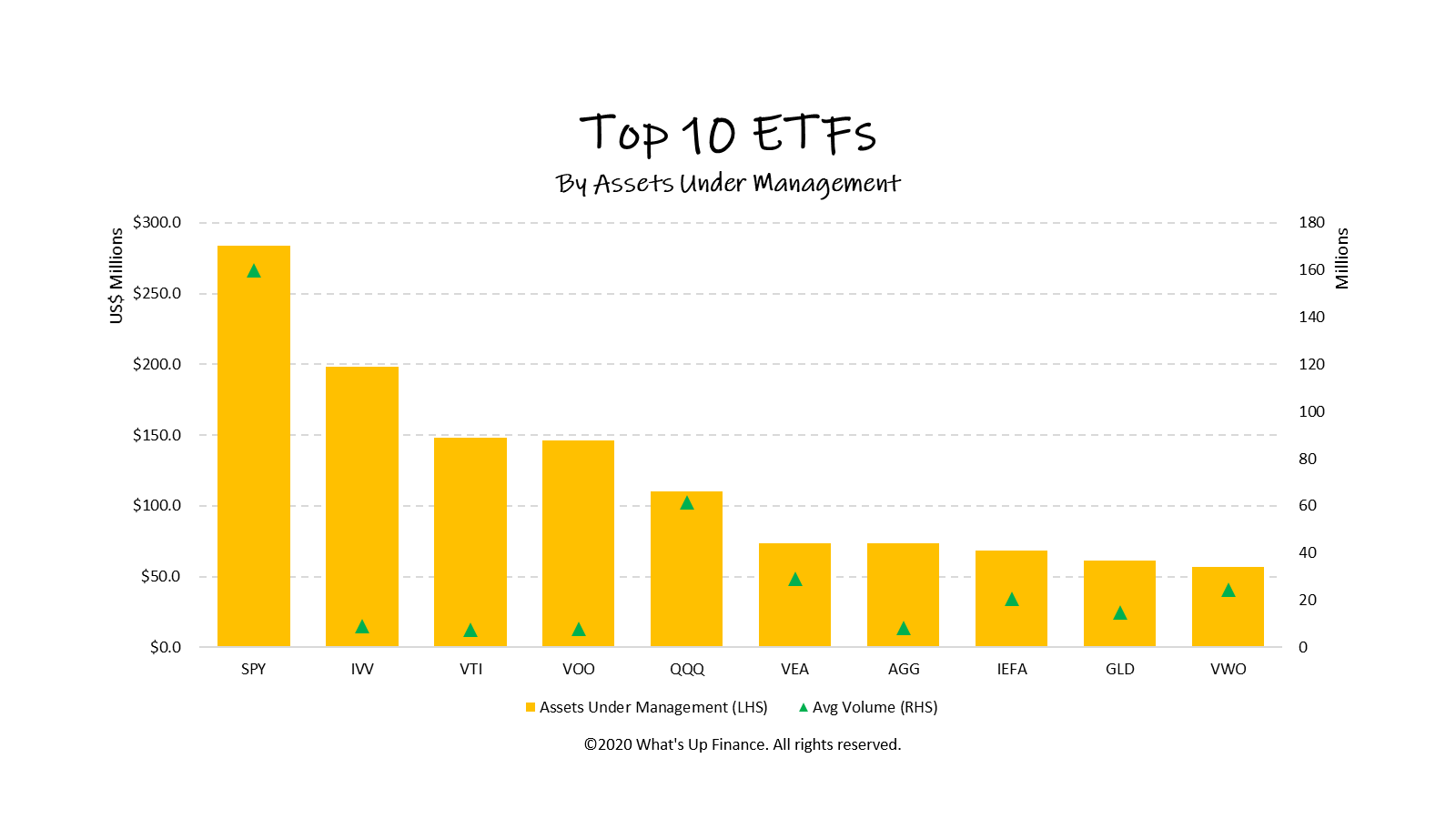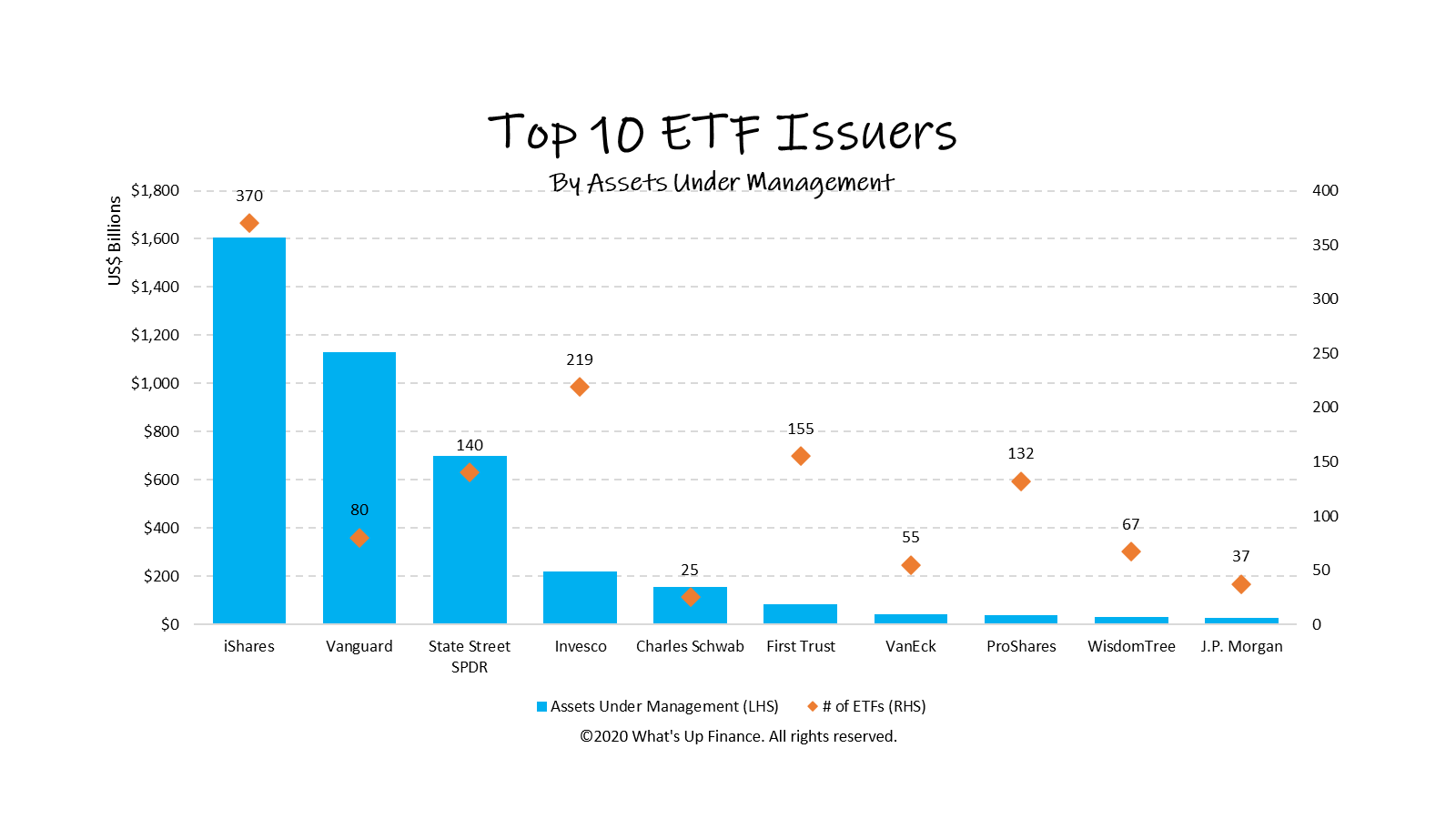Performance of stock market indices (e.g. Dow Jones Industrial Average, S&P 500, Nasdaq Composite, Shanghai Composite) is ubiquitous in financial news posts and articles. The stock indices measure the performance of a basket of stocks listed on stock exchanges. Investors may want to replicate or generate similar returns as these stock indices. However, these indices might contain hundreds or even thousands of securities, which makes it very difficult and costly for an individual investor to replicate. This desire became the genesis of exchange-traded funds.

What Is An ETF?
An exchange-traded fund (ETF) is a basket of stocks, commodities or bonds that are designed to represent an index. This offers investors an opportunity to invest and generate similar returns as the index the ETF is tracking. In addition, ETFs offer investors with a low-cost way to build a broadly diversified portfolio.
There are often more than one ETF tracking the major stock indices. Let’s take S&P 500 for example. SPDR S&P 500 ETF (NYSEARCA: SPY), iShares Core S&P 500 ETF (NYSEARCA: IVV), Vanguard S&P 500 ETF (NYSEARCA: VOO) are all ETFs tracking the S&P 500 index.
Below is a list of top ETFs by assets under management.
- SPDR S&P 500 ETF (SPY)
- iShares Core S&P 500 ETF (IVV)
- Vanguard Total Stock Market ETF (VTI)
- Vanguard S&P 500 ETF (VOO)
- Invesco QQQ (QQQ)
- Vanguard FTSE Developed Markets ETF (VEA)
- iShares Core U.S. Aggregate Bond ETF (AGG)
- iShares Core MSCI EAFE ETF (IEFA)
- SPDR Gold Trust (GLD)
- Vanguard FTSE Emerging Markets ETF (VWO)

Where Can I Buy ETFs?
ETFs are traded on the stock exchanges around the world. The mechanics of purchasing and selling ETFs are very similar to that of purchasing and selling individual stocks. Just like stocks, the ETFs have their stock ticker symbols.
Who Issues and Manages the ETFs?
ETFs are managed by investment management companies. The largest ETF managers include BlackRock’s iShares, Vanguard and State Street SPDR.

Key Considerations On ETFs
The most important factor to keep in mind is that the return on ETFs will differ from the return on the stock indices they track. There are two key factors causing this deviation:
(1) ETFs do not always track the performance of the indices. You may see some variation in the return of the ETFs compared to the indices they are meant to track. This deviation is known as tracking error. Why is there a tracking error?
If you think about what a stock market index is, you will realize that it is impossible to buy precisely all the shares traded on the stock exchanges. ETF managers aim to achieve a representation of the index, so there will always be some deviation in the performance. That being said, ETF managers do focus on minimizing the tracking error with the cost of doing so. There are several methods to do so. One method is to achieve similar weighting of stocks in the ETF as the weighting in the stock market indices.
(2) Besides tracking error, there is a management fee associated with every ETF. The management company charges a management expense fee for the work and cost associated with maintaining the ETFs. These fees cover the compensation of portfolio managers and other staff, the costs of buying and selling shares, the profit they make, etc. Management fees is another factor causing the deviation of returns from the stock indices and the ETFs.
If you know someone who is interested in learning about ETFs, please do a favour and share this with that person!

